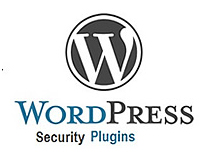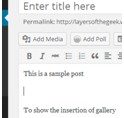Keeping Your WordPress Website Secure
 As 2013 cleared out, we saw a plethora of people discussing the main issue: security. In the last year, many websites were hacked (including mine) and it got people very worried. Although it might seem that all hope is lost, there are a lot of ways you can stay one step ahead of the hackers. WordPress, being the best content management service, powers many popular websites. This article is aimed at letting you know what you can do to protect your WordPress website. It might not come as a surprise to the seasoned developers, but to the others this might be refreshing to know that there are plug-ins on the marketplace that will help you achieve just the right amount of security.
As 2013 cleared out, we saw a plethora of people discussing the main issue: security. In the last year, many websites were hacked (including mine) and it got people very worried. Although it might seem that all hope is lost, there are a lot of ways you can stay one step ahead of the hackers. WordPress, being the best content management service, powers many popular websites. This article is aimed at letting you know what you can do to protect your WordPress website. It might not come as a surprise to the seasoned developers, but to the others this might be refreshing to know that there are plug-ins on the marketplace that will help you achieve just the right amount of security.
Better WP Security
Better WP Security is a great example. It is not just another plug-in, it is the plug-in to get. Taking care of the practical aspects of security, it allows the administrator to focus on other important matters. Did I forget to mention that it has been downloaded more than a million times? Yes, it is that good.
WP Security Scan
WP Security Scan also has more than a million downloads. As the name suggests, this plug-in scans your website for possible security vulnerabilities, after which it provides with all the possible suggestions to remove those weaknesses.
Secure WordPress
Despite the rating telling a different story, this is a great plug-in. Adding a virtual plug-in director, Secure WordPress allows people to hide the core information about their website, preventing various sorts of attacks. In addition to that, knowing less about the version of your WordPress platform and similar other facts hackers are unable to perform various attacks. It acts vigilantly and makes the whole experience worry-free and more enjoyable.
Key considerations
These are some plug-ins that will aid you in securing your website; there are many other things you must regard, like not worrying about people planting doubts in your head about WordPress’s insecurity. It all depends on how you set it up. The truth is that WordPress powers nearly 71% of the world’s websites, so you need to have faith.
Honestly, your website is never completely secure. Hackers are always experimenting, coming up with new ways to intrude on your domain. Never go with a solution that promises you 100% security; they are defrauding you. The security frontier is rapidly evolving, morphing into something big which our non-hacker minds cannot comprehend.
Here are some more considerations:
Good Host
Use a reliable web hosting service; it might be the crucial element you neglected. Looking to go with a cheap web hosting service can render your website vulnerable to a wide variety of attacks. There are many web hosting providers who provide with great security plans to go along with their hosting services. Choose wisely.
Stay Up-to-date
More than often, WordPress rolls out new updates. Make sure you update your installations as soon as possible. Usually these updates contain security patches, which safeguard you from various malicious attacks. Not only just the WordPress installation, update your themes and plug-ins too.
Limit Access
This is very crucial. You should know who has access to your website. Keep an eye on the users; make sure there is no one you did not authorize. Similarly, do this with the apps that can access it. There should not be anything accessing your website that you did not authorize. Stick with the trusted users and apps.
Strong Password
Make sure that you use strong passwords. Confirm that you include both lower case and upper case letters. Making the password alpha numeric with both lowercase and uppercase letters is probably the best bet you can make. Not only that, keep changing it so that your attackers get a hard time figuring it out. Storing it in a notebook could be a good option.
Database Backup
Last but not the least; create a backup of your database regularly. This is to ensure that in case of your security being compromised you have something to rebuild your website on. Yet again, there are plug-ins that can help you do that. Within minutes, you will be up and running automated backups of the website’s database.
Now that some of the more intricate ways have been unveiled, use them to guarantee the safety of your website.




